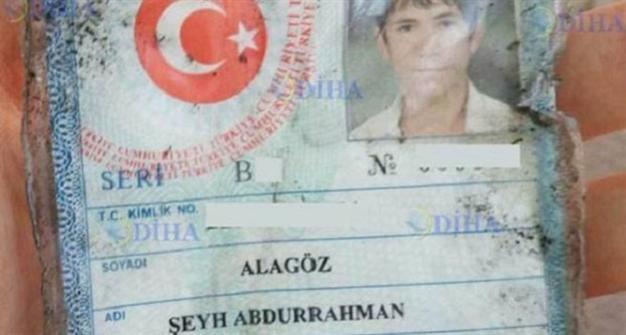Forensic analysis points to 20-year-old man as suicide bomber
ISTANBUL

According to the most updated information, the prime suspect is 20-year-old Abdurrahman Alagöz, whose ID was found on an unrecognizable corpse in the crime scene, even though he disappeared after the explosion.
Turkish authorities have come close to identifying a suspected suicide bomber of the Islamic State of Iraq and the Levant (ISIL)-launched attack on a political event in southeast Turkey, an official source close to the forensic investigation told the Hürriyet Daily News.At least 32 political activists and aid volunteers were killed in a municipal culture center in the southeastern province of Şanlıurfa’s Suruç district on July 20, soon before they crossed the border to help with rebuilding the Syrian Kurdish town of Kobane.
Turkish daily Habertürk reported on July 21 the General Directorate of Security had warned in June that three female ISIL militants, Fadime Kurt, Özlem Yılmaz and Nuray Demirel, could carry out a suicide bombing in Turkey.
Some 24 hours after the explosion, the Prosecutor’s Office and forensics experts managed to “put together the pieces of all corpses except one like a jigsaw puzzle,” the source said. The still-unidentified 32nd corpse is thought to belong to any of the female suspects.
According to the most updated information, the prime suspect is 20-year-old Abdurrahman Alagöz, whose ID was found on an unrecognizable corpse in the crime scene, even though he disappeared after the explosion.
Speaking to Radikal’s İdris Emen, the young man’s mother, Semüre Alagöz, said that his son had gone “abroad” six months ago and returned only 10 days ago before she lost contact with him.
“They didn’t tell us where they went and what kind of job they found there. I don’t know whether he joined ISIL. He was a good boy,” the woman said, adding that Alagöz’s young brother, Yunus, was also missing.
A September 2014 investigation by daily Hürriyet had revealed that new Islamic associations that have popped up across Turkey were used by ISIL to recruit Turks.
So far, hundreds of people have crossed from Turkey to Syria to join the war. Ankara has since started to adopt stricter measures, such as travel bans, tighter border security and arrests to stop the flow.
















